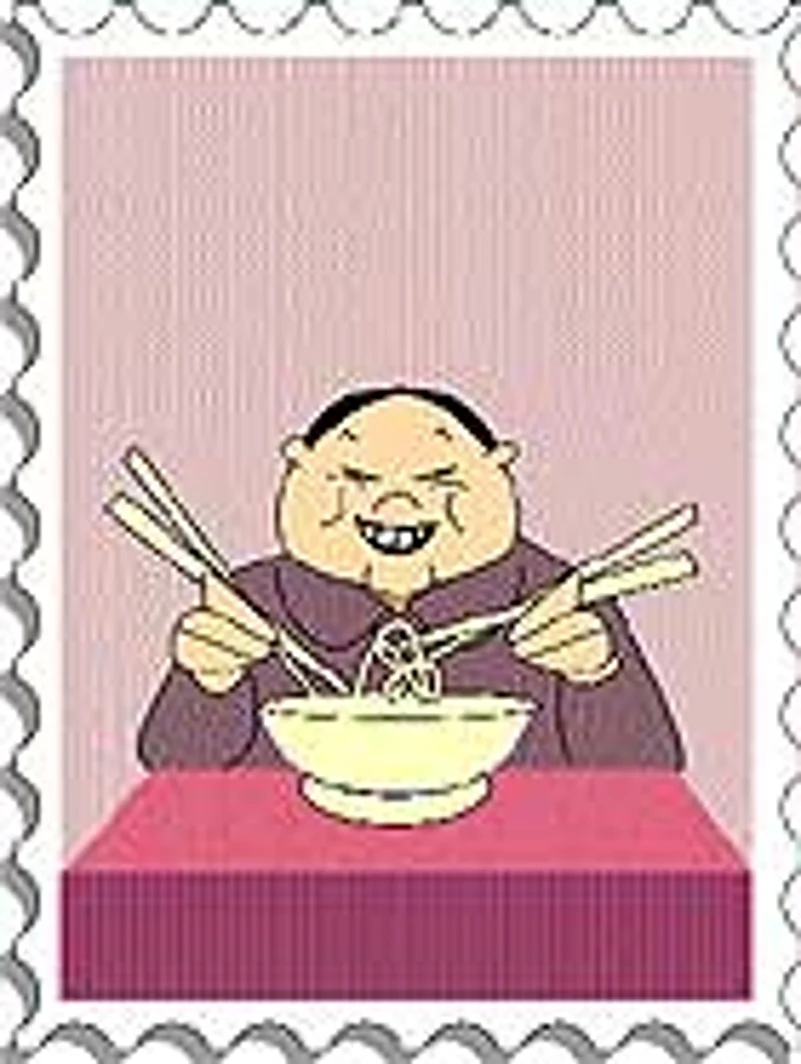All Squared Up

I visited Beijing in 2007, a year prior to the Olympics, and then again last week. The transformation of this gigantic city is clearly impressive. This is the capital of the world’s most populated nation so its scale will naturally be vast. But like the outward demeanour of the Chinese people themselves, there isn’t much flashiness or showing off. The mammoth Olympic Stadium (the Bird’s Nest) looks abandoned and forlorn but the Forbidden City is back to its former glory (it was under renovation in 2007), exactly as one saw it in The Last Emperor.
Outside the walled Forbidden City complex of buildings is Tiananmen Square, flanked by the Great House of the People. As the Chinese Parliament is currently in session, the roof of the massive building is lined profusely with hundreds of red flags fluttering in the strong wind. For the same reason, the memorial of Mao Zedong is temporarily closed to public access and the vast Tiananmen Square itself is under intense police surveillance. The Chinese are wary about any event in the square ever since one million people gathered there in 1989 and some of the demonstrators lost their lives. You can still enter the square but only after going through the scanners. As it had snowed the previous evening, wandering around the square is distinctly uncomfortable because of the harsh wind. The fact that I am dressed warm enough to climb Mount Everest makes no difference. My touristy foray does not last more than 20 minutes before I rush back to the warmth of the hotel.
Reading the Leaves
Since the lady back home is now a green tea addict, I pop into a small shop that sells everything connected with tea including teapots, tea-trays (made of clay), porcelain tea sets, tea mugs and, of course, varieties of tea. Unlike tea-buying back home, the Chinese will not allow you to get away without a small ritual. The tea must be tasted before you buy it. After you have indicated your preferences, you are asked to sit while the kettle boils on a stove. The hot water is then sloshed over the leaf and you get to sample as much as is brewed in small delicate porcelain cups. Dragons are to be found lurking on every tea instrument, including the kettles.
I can say with some confidence that I have discovered the reason for the routine. While the water is brewing, the mind wanders over the other clutter in the shop. Eventually, you find yourself buying more than just the half kilo of jasmine tea that first drew your attention. You end up, like I did, with a quaint tea strainer made from pumpkin, a six-cup china tea set with kettle, a large porcelain tea mug with an in-built porcelain strainer and cap, and a set of sampling cups, in addition to the jasmine tea.
English Manchurian
The city still does not speak English. The bell-boy at my hotel spends a few minutes with me practising his English. Since I am visiting the university, he thinks I am a professor of sorts. I humour him for some time, but I can envision huge employment possibilities for retired English teachers from India. The Chinese believe Indians speak good English and are willing to be tutored by them in contrast to Americans (who are too aggressive in manners, speak too fast and are mostly unintelligible).
The moment you speak to waiters in English in Chinese restaurants, they immediately lose confidence and back off. This happened time and again. The first waiter who arrives at your table will retreat on hearing a customer speaking English and will disappear to find another colleague to take the order. The replacement will also retreat on the same grounds till someone (higher up in the hierarchy) arrives who has the confidence to stand and take orders even if it is still a slow process, edged along with plenty of sign language and pointing at pictures of desired dishes on menu cards. Despite the illustrated menus, ordering with the assistance of Chinese friends is still the only guarantee to a completely satisfactory meal. I have tried sometimes ordering on my own and been dismayed at what the cat brought in.
One thing is clear. Nowhere did I find any sign of our favourite Indian Chinese dish, ‘Gobhi Manchurian’. On my return to India, I am now wholly disinclined to visit Chinese restaurants. I think I’ve been cheated all my life.
Table Manners
At the end of a marvellous Chinese meal, the chief waiter brings a bill. He bends over to whisper and tell our host that this is a draft bill. It takes some time to understand what the problem is. Our host simply laughs and explains to us that the restaurant is saying it can inflate the bill so that we can claim more, if possible, from our sponsors. That’s when I discover that countries do learn things from their neighbours even if they are not always the best of friends.
























